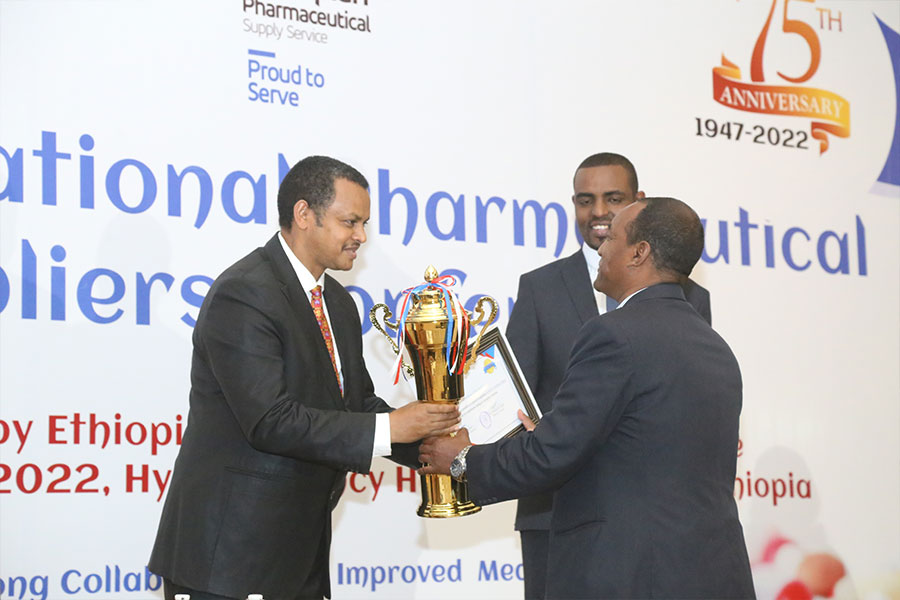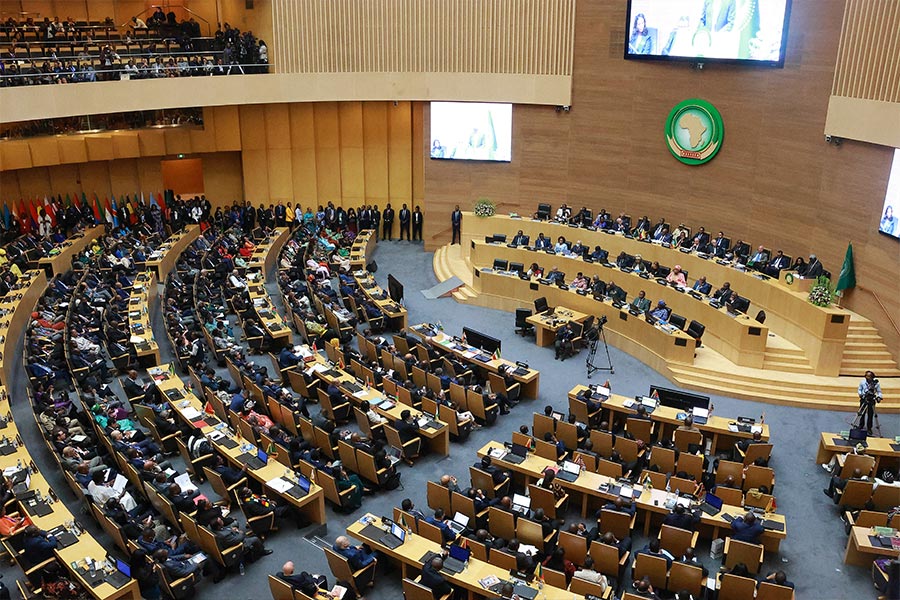
Life Matters | Dec 29,2018
Apr 28 , 2024
By Kidist Yidnekachew
Engrossed in thought, I was abruptly pulled back to reality by a booming male voice. The raw passion in his tone was captivating, sparking my curiosity about the source of his fervour.
Unknowingly eavesdropping, I discovered he was venting about a lack of recognition at work. In his view, colleagues who contributed less to a recent project were receiving praise, while his efforts were seemingly ignored. The frustration was palpable. Here was someone who poured his heart into his work, only to be disregarded when rewards were handed out.
As he continued, he questioned if his past dedication to anonymity had somehow rendered his contributions invisible. There was a melancholic mix of anger and sadness in his voice as he recounted his numerous, previously uncredited, efforts. The once unimportant recognition now felt essential as promotions and raises materialised. He had gone above and beyond but remained stagnant while colleagues with lesser contributions were lauded.
Empathy tugged at me. Though a glimpse of his back was all I managed before he disappeared, his story lingered. It resonated deeply, a reflection of the silent struggles many face. This encounter sparked a contemplation on the interplay between recognition and anonymity, and their impact across different aspects of life.
Some actively seek the spotlight, basking in the glow of acknowledgement for their achievements. Others, however, find solace in anonymity, deriving satisfaction from the intrinsic rewards of their work. Anonymity can be liberating, allowing individuals to focus purely on the act of creation or contribution, unburdened by the pressure of external validation.
This intrinsic motivation is prevalent in artistic endeavours, where the focus might be on igniting social dialogue rather than individual recognition. Similarly, open-source contributors might find greater satisfaction in the collective benefit created by their code, rather than personal fame. Anonymity can be a shield for whistleblowers or activists, protecting them from retaliation in their fight for social justice.
For some, the prospect of recognition can trigger social anxiety, creating an aversion to the fanfare of public speaking or awards ceremonies. Introverts or those with social anxieties might find solace in the quiet satisfaction of accomplishment, without the accompanying spotlight. The pursuit of recognition is highly individual, driven by personal motivations.
Some see recognition as a stepping stone to career advancement, while others seek validation to combat feelings of inadequacy. In extreme cases, the desire for credit can morph into unhealthy behaviours, leading to unethical actions like plagiarism or taking credit for another's work.
Individuals might become fixated on self-aggrandisement, resorting to manipulation or plagiarism to claim achievements they never earned. Their fragile sense of self hinges on external validation, even if obtained through dishonest means. The issue of credit becomes complex in collaborative settings, where multiple individuals contribute to a shared goal. Striking a balance between recognising the collective effort and acknowledging individual contributions is crucial.
The pursuit of recognition can be a powerful motivator, but nurturing humility is equally important. Leaders who genuinely appreciate their team members foster a more collaborative and encouraging environment. Imagine a CEO who takes the time to acknowledge the accomplishments of their staff, creating a culture where everyone feels valued and inspired to make a difference.
The yearning for acknowledgement and the inclination for anonymity are not inherently positive or negative. They are both expressions of the human desire for significance and purpose. By understanding the motivations behind these contrasting attitudes, individuals can navigate the complexities of recognition in both personal and professional spheres.
PUBLISHED ON
Apr 28,2024 [ VOL
25 , NO
1252]


Life Matters | Dec 29,2018

Fortune News | Oct 11,2020

Radar | May 20,2023

Radar | Sep 17,2022

Fortune News | Mar 14,2020

View From Arada | Dec 02,2023

View From Arada | Feb 24,2024

My Opinion | Jul 30,2022

Life Matters | May 13,2023

My Opinion | Sep 11,2020

Photo Gallery | 171316 Views | May 06,2019

Photo Gallery | 161559 Views | Apr 26,2019

Photo Gallery | 151262 Views | Oct 06,2021

My Opinion | 136284 Views | Aug 14,2021





Dec 22 , 2024 . By TIZITA SHEWAFERAW
Charged with transforming colossal state-owned enterprises into modern and competitiv...

Aug 18 , 2024 . By AKSAH ITALO
Although predictable Yonas Zerihun's job in the ride-hailing service is not immune to...

Jul 28 , 2024 . By TIZITA SHEWAFERAW
Unhabitual, perhaps too many, Samuel Gebreyohannes, 38, used to occasionally enjoy a couple of beers at breakfast. However, he recently swit...

Jul 13 , 2024 . By AKSAH ITALO
Investors who rely on tractors, trucks, and field vehicles for commuting, transporting commodities, and f...

Oct 4 , 2025
Eyob Tekalegn (PhD) had been in the Governor's chair for only weeks when, on Septembe...

Sep 27 , 2025
Four years into an experiment with “shock therapy” in education, the national moo...

Sep 20 , 2025
Getachew Reda's return to the national stage was always going to stir attention. Once...

Sep 13 , 2025
At its launch in Nairobi two years ago, the Africa Climate Summit was billed as the f...

Oct 5 , 2025 . By NAHOM AYELE
In Meqelle, a name long associated with industrial grit and regional pride is undergo...

Oct 5 , 2025 . By BEZAWIT HULUAGER
The federal government is set to roll out a new "motor vehicle circulation tax" in th...

Oct 5 , 2025 . By NAHOM AYELE
The Bank of Abyssinia is wrestling with the loss of a prime plot of land once leased...

Oct 5 , 2025 . By BEZAWIT HULUAGER
The Customs Commission has introduced new tariffs on a wide range of imported goods i...